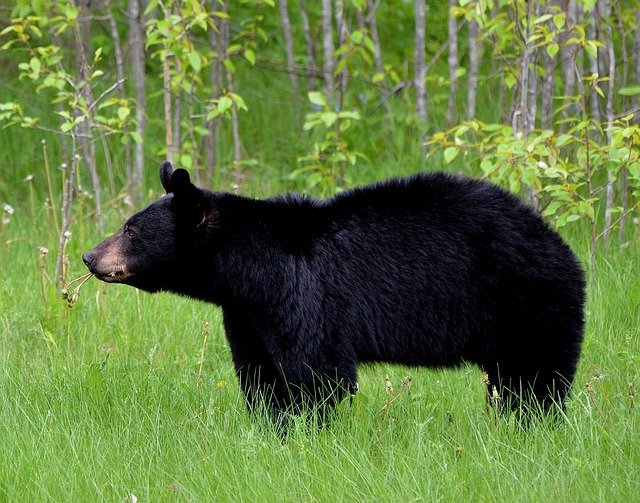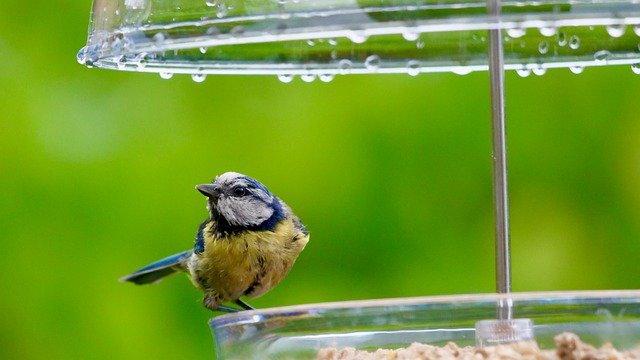Bird Feeders
Help keep bears wild and keep your property safe.
Bears and Bird Feeders
The NH Department of Wildlife recommends feeding birds only from Dec. 1st to April 1st to avoid attracting bears.
Summerfield adopts this guideline and asks all residents to remove all bird feeders by April 1st. Do not leave any bird feeders, poles, etc. from April 2nd to at least Nov. 30th. If we’ve had a warm November, delay in putting up feeders until it is colder.
Bird feeding should only occur during the winter months when bears are in their dens. Birds do not require supplemental feeding, especially during the warmer months of the year.
When bears emerge from their dens in early spring, natural foods are lacking. Birdseed presents an abundant and easily obtained food source. It is important to remember that residual seed remaining on the ground will attract bears and should be removed.
Store all birdseed securely indoors at all times.

Did you Know:
A black bear must consume up to 15,000-20,000 calories per day.
A typical bird feeder contains roughly 12,000 calories.

Help keep bears wild
As unbelievable as it may be, an animal as large and powerful as a black bear is readily attracted to bird feeders. Birdseed is an easy source of calories. In many cases, birdseed is the food of choice and will be sought out over other natural foods.
Birdseed, even in small quantities, is high in protein and fat. It takes less effort to obtain calories from a bird feeder than to forage for natural foods. Bears foraging in developed areas are significantly more likely to be hit by cars or shot illegally by people who mistakenly perceive a threat to their own safety.
Help keep your property safe
Bears that successfully find birdseed at one home will inevitably approach other dwellings. If they become accustomed to feeding in yards and around homes and people, they may cause property damage and will likely become chronic nuisances.

'Bear-Resistant Bird Feeders'
Many people feel they can out-smart bears by taking their feeders in at night. This may offer some relief; however, there is usually enough residual seed from daytime feeding to continue to attract bears. Others attempt to place the feeder high and out of reach of the bear.
A bear’s sense of smell is so keenly developed that the feeder’s presence will continue to attract the bear. This often does not discourage it from spending considerable time near the bird feeder trying to figure out how to reach it. Other residents have attempted to mix cayenne pepper with the birdseed to make it less palatable. In bear country, every bear that finds the feeder will have to knock it down to learn that it contains pepper and is not a good source of food.

Removal of the Attraction is the only Long-Term solution
As is the case with almost all human-bear conflicts, you will take away the bear if you take away the food. Black bears, like all wildlife, are best appreciated at a distance.
In addition, one should note that NH does have laws against feeding black bears.
N.H. Rev. Stat. Ann. §§ 206:19-a and 651:2 and
Bear Feeding Laws in the NorthEast 36 C.F.R. §§ 1.3 and 2.2
